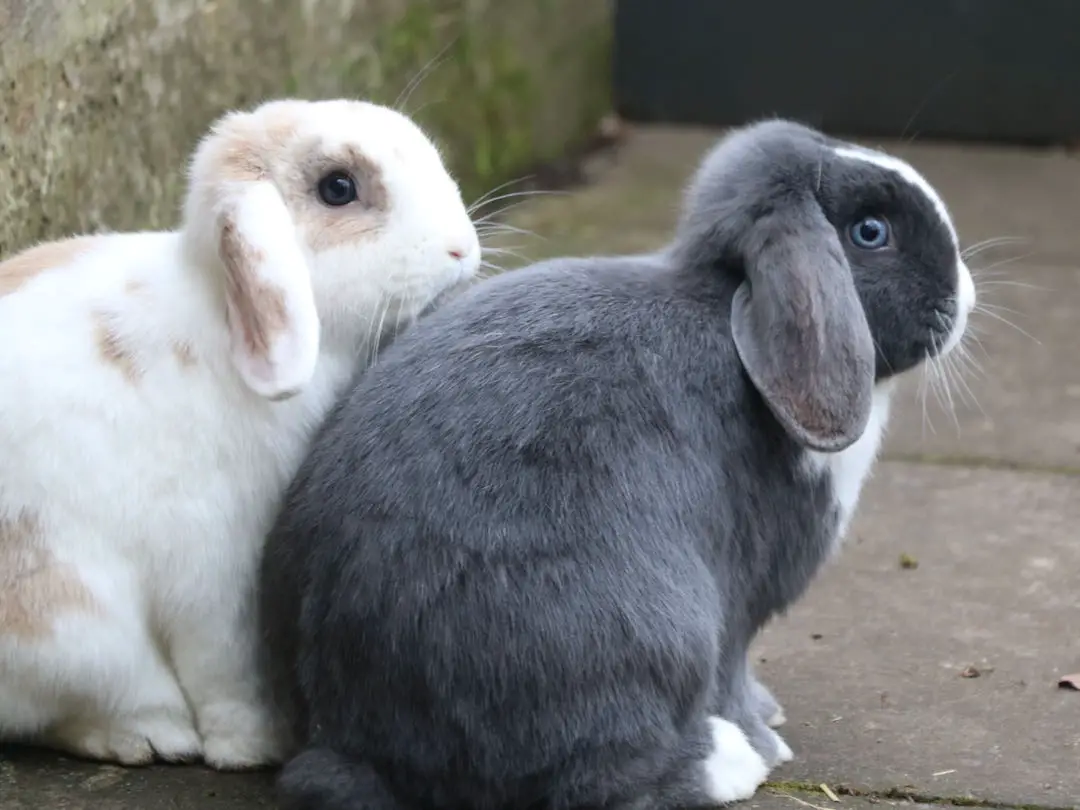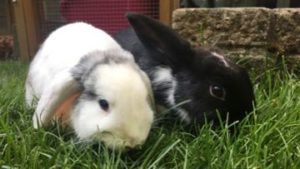You know what it’s like. You get to the end of a long day, you feel a little tired, you stretch out and yawn. It’s so natural to us that we usually don’t even notice (we even yawn in the womb). But do our bunnies also yawn? Here’s a quick summary, but do read on for more detailed information.
Rabbits do yawn. Just like humans and many other animals, rabbits yawn when they are feeling sleepy. Yawning may help increase blood flow to the brain, and help regulate the temperature of the brain for better physiological performance. This also increases the arousal level of the rabbit when they are tired. Yawning may also reduce anxiety in rabbits.
Reasons why rabbits yawn
Sleepy rabbits yawn
Rabbits get tired, lazy or sleepy just like us humans. And just like us humans, when they are tired they are more likely to yawn. You are most likely to notice your bunny yawning as they settle down to go to sleep, or as they’re waking up. In slightly more scientific terms, rabbits yawn when transitioning between being awake and asleep.
The reason sleepy rabbits yawn may be to maintain or increase their arousal levels. Particularly when waking up, an animal needs to become alert as soon as possible. Yawning may be one of the ways that animals ensure this.
Yawning helps to increase blood flow to the rabbit’s brain
One of the effects of yawning may be to increase blood flow to the brain. The way this works is complex, but involves the stretching in yawning affecting vagus nerves resulting in more flow of highly oxygenated blood to the brain. This in turn helps with arousal levels. In particular, yawning appears to create cortical arousal
Yawning helps rabbits to regulate the temperature of their brain
Yawning also helps rabbits (and other animals) to control or regulate the temperature of their brain. This is known as the thermoregulatory theory of yawning. This is backed up by research showing that yawning is controlled by a part of the brain called the hypothalamus, which also controls the regulation of temperature.
How this works is also complicated, involving cooling arteries that supply the brain and other effects. But it seems to work.
This has been confirmed by experiments on rats – yawning helped lower their brain temperature by up to 0.5oC.
So when your bunny yawns, they are helping to make sure that their brains are not getting too hot or too cold.
Yawning may reduce anxiety in rabbits
Despite what we may expect, we are more likely to yawn before a stressful event (so don’t be surprised if you find yourself yawning before an important public speech or competition).
Animals also yawn when facing stressful situations. Why would they (and we) do this? Because stress heats up our brains. And yawning helps control that heating effect, keeping our brains from getting too warm.
So your bunny won’t only yawn when they’re waking up or going to sleep, but also when they are feeling stressed out by a situation. Yawning is one way of your rabbit keeping in control.
Yawning isn’t about increasing oxygen levels for rabbits
A popular myth about yawning is that it increases oxygen levels and decreases carbon dioxide levels, as it is a massive intake of breath. However, scientific tests haven’t backed this theory up, at least in humans. They’ve tried increasing carbon dioxide levels, with no increased yawning (their breathing changed in other ways). And subjects who breathed pure oxygen didn’t show a decrease in yawning. Similar results have been found in experiments with rats.
How do rabbits yawn?
A rabbit is about to yawn will usually settle down, putting out their front feet, before lifting their head back to be able to open their mouths as widely as possible and stretch for the yawn.
Here’s a few live action yawns:
Are yawns contagious in rabbits?
Yawns are contagious in quite a few animals, not just humans. We develop the habit of yawning when other people yawn around the age of 5 years old, which suggests it has a social function alongside the physical effects. The animals where scientists have observed contagious yawning (in some cases in response to human yawning) include dogs, sheep, elephants, wolves, chimpanzees and even lions. These are all animals who live in social groups.
In lions, yawning together seemed to help coordinate them as a group and engage in cohesive action (you can check out the study here).
However, no-one appears to have studied rabbits yet.
As rabbits are extremely sociable, it would not be surprising if yawning was contagious in rabbits. But we don’t know for certain yet.
If anyone is an aspiring scientist or vet, and has multiple bunnies, perhaps you could do the research? The world needs to know!
Conclusion
Rabbits yawn, just like us humans. They yawn when they’re going to sleep and when they’re waking up, and also if they are facing a stressful situation. Yawning increases their alertness levels and helps them regulate their temperature.
You may also like:
You can find out more about when and how rabbits sleep here.
Ever wondered whether or not rabbits are nocturnal?
Explore how rabbits hear the world.


